13 Oct Inspiring Children, Aspiring Inclusion
Industry Insights
This article highlights the universal directives that drive Inclusive Education, the Malaysian response to these mandates and current trends that help children with special needs. Also featured are the opinions of Venus Lim, Head of Special Needs Education and Grace Koh, Lecturer, Special Needs Education at Dika College on how educators, through their training, make education inclusive. In speaking at the recent webinar organised by Dika College on ‘Specific Learning Disabilities: Early Identification and Support Strategies during the Pandemic’, industry stalwart Sariah Amirin, President of Persatuan Dyslexia Malaysia offers complementing insights on how the community can come together to secure an inclusive mindset and environment for children.
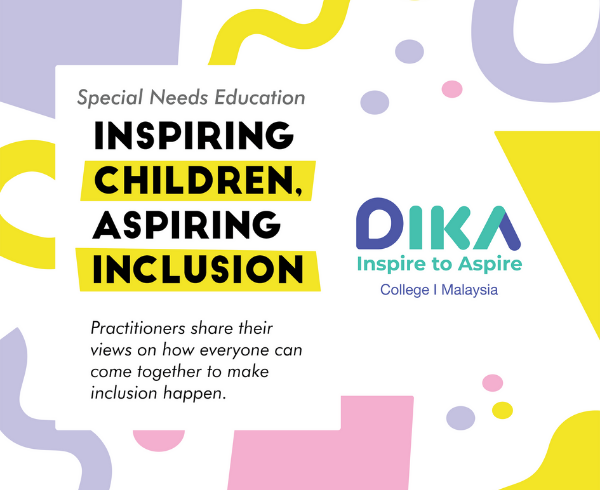
What is “inclusive education”?
Understanding the Context of Inclusion
At the International Conference on Education (48 Session), Cleminta Acedo, the UNESCO-IBE Director, stated in an interview, “According to UNESCO, inclusive education is seen as ‘a process of addressing and responding to the diversity of needs of all learners through increasing participation in learning, cultures and communities, and reducing exclusion from education and from within education’. The goal is that the whole education system will facilitate learning environments where teachers and learners embrace and welcome the challenge and benefits of diversity. Within an inclusive education approach, learning environments are fostered where individual needs are met and every student has an opportunity to succeed.”
Universal Directives
Mandating Inclusive Education
Signed in 1989, the United Nations Convention on the Rights of the Child is the world’s most widely ratified human rights treaty that promises the children of the world access to health care, nutrition, education, social inclusion and protection from violence, abuse and neglect.
In 1994, representatives of governments and international organisations adopted the UNESCO Salamanca Statement. The Statement, categorically calls for children with disability to attend their neighbourhood school ‘that would be attended if the child did not have a disability.
In 2015, in Incheon, South Korea, member states and the education community adopted the Education 2030 Framework for Action at the World Education Forum. The framework, known as the Incheon Declaration, drives a universal goal to,
‘Ensure inclusive and equitable quality education and promote
lifelong learning opportunities for all .’
The framework was adopted in the same year by the United Nations and became part of the Sustainable Development Goals (SDG4).Malaysia acceded to the Convention on the Rights of the Child (CRC) in 1995 and aligns its national educational planning with the Salamanca Statement and the SGD4.
The Malaysian Roadmap
Navigating Inclusive Education
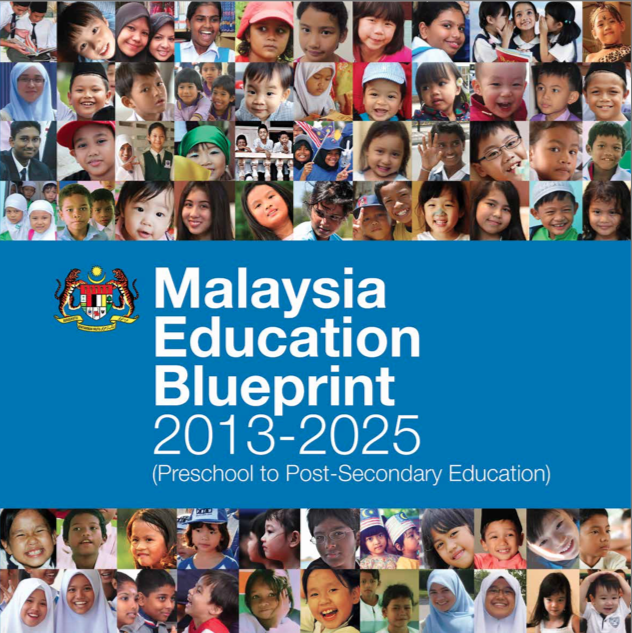
In Malaysia, students with special education needs include students with visual impairment, hearing impairment, speech difficulties, physical disabilities, multiple disabilities and learning disabilities such as autism, Down Syndrome, Attention Deficit Hyperactivity Disorder (ADHD) and dyslexia.
The landscape of special education involves multiple stakeholders including parents, NGOs, the Ministry of Education, the Ministry of Women, Family and Community Development, the Ministry of Health, the Ministry of Human Resources and the mass media. All stakeholders play important roles as supporters, enablers, advocates and delivery partners in the education of children.
Only 6% of Malaysia’s special education needs children are part of inclusive programmes. Based on international best practices and current national policy, the Ministry of Education is committed to giving every child with special needs access to a high quality and relevant education that is tailored to his or her particular needs, to have every teacher equipped with basic knowledge of special education, and to have 75% of students with special needs enrolled in inclusive programmes by 2025. (Source: Malaysia Education Blueprint 2013-2025)
The Trends Factor
Enriching the Educational Experience
Full Inclusion Values
Studies increasingly show that inclusive education settings benefit children with (or without) special needs. The benefits of learning alongside one another are the development of friendship skills, peer models, problem-solving skills, positive self-image and respect for others, all of which help children grow to be independent individuals.
Early Identification Competencies
Some disabilities may not be as visible as others. Therefore, teachers must be trained to look out for signs of delays in the development of motor skills, language, social-emotional abilities and cognitive processing. According to the Malaysia Education Blueprint 2013-2025, this may include efforts to increase outsourced therapy services in schools.
Assistive Technology Tools
New education tools are constantly being introduced, and teachers and parents must keep abreast with developments in early intervention. For example, Technology tools such as mCLASS, a reading application, and Babynoggin, a suite of mobile apps, are assistive technologies that have proven helpful with early screening for dyslexia and other development delays.
Open Educational Resources
Open Educational Resources (OER) are teaching, learning and research materials in any medium, digital or otherwise, that reside in the public domain. There are a myriad of OER materials that can be accessed on freely available online platforms which are cost-effective, proving extremely beneficial to learners with special needs.
The Educator Factor
Inspiring Children, Empowering Parents, Embracing Trends
“It is important that I help my students develop a mindset that motivates them to know their theories and master skill-based industry benchmarked techniques. A good educator must keep abreast with the latest trends and use them to achieve inclusion,” explained Venus Lim, Head of Special Needs at Dika College.
To do this, Lim ensures that the students learn from captains of the industry. “Virtual meets enabled us to carry on with engagement with the industry during the Pandemic,” said Lim commenting on the recent Webinar on ‘Specific Learning Disabilities: Early Identification and Support Strategies during the Pandemic’ organised by Dika College.
According to Grace Koh, a Special Educational Needs lecturer at Dika College who guided students in the organisation of the event, “In the last year, educators, more so special needs educators, needed to increasingly enrich their roles as a collaborator and a coordinator, in order to make their teaching effective while at the same time provide support to parents. ”
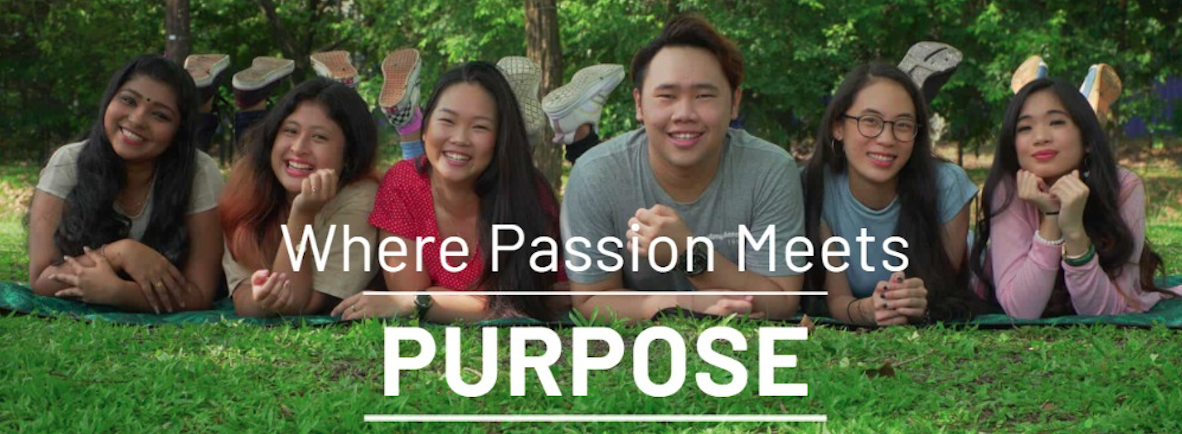
DIKA EXPERIENCE: Future educators are educated in aspects of Inclusive Education.
“Learning must continue to happen no matter the circumstance,” Koh emphasised. She added that the speakers who spoke at the webinar stressed in great detail the need for parents, educators as well as industry experts and leaders to work together in order to successfully provide timely and appropriate support to children who have special needs.
Lim also emphasised that educators must be passionate about advocating for equitable education. “When it is safe to resume face-to-face engagements, I hope to conduct more hands-on sessions to enable students to collaborate with the industry and get a better understanding of inclusion, its workings and how to provide support for children and families.”
The Industry Factor
Serving children with special needs and supporting parents
“The most significant relationship, in terms of your child’s school success and development, is the one you form with his or her teacher,” shared Sariah Amirin, President, Persatuan Dyslexia Malaysia when she spoke at the recent Webinar on ‘Specific Learning Disabilities: Early Identification and Support Strategies during the Pandemic’.
Sariah highlighted, “Building partnerships between families and schools is an effective strategy to address opportunity gaps, especially for those who have been historically underserved.”
She added, “Strong partnerships support children’s learning and ability to develop lifelong skills and networks while also strengthening parents’ capacity to be engaged in their child’s school experience.”
Sariah explained that research alluded to an improvement in children’s work habits, attitudes about school and grades when a partnership approach between parents and teachers is evident.
“They demonstrate better social skills, fewer behavioural problems and possess a greater ability to adapt to situations and get along,” added Sariah who pointed out that parents and teachers benefit as well.
“When working together as partners, it’s been found that parents and teachers communicate more effectively, develop stronger relationships with one another and hone skills to support children’s behaviours and learning,” she said.
An Inclusive World
In a world where inclusion prevails, we no longer see the child or the disability as the problem. In its place, we focus on obstacles caused by lack of training, misconceptions and unaccepting mindsets.
Whether children are separated based on ability, race or any other characteristic, separation is not equal, and segregation does not work. All children have the right to be with other children their own age.
Inclusion will happen if all stakeholders commit to promoting inclusive education practices. Collaboration between us is key, if not crucial, to the success and impact of inclusive education.
“We must work together to build a world for inclusion.”
–Excerpt from the United Nations Educational, Scientific and Cultural Organization (UNESCO) 2006 Convention on the Rights of Persons
INSPIRE TO ASPIRE: Dika College graduates are leading change in various industry sectors throughout Malaysia and across the globe. They are successful in their chosen vocation as professionals in the early childhood fields. Many pursue further education, and some are volunteers and advocates for charitable causes.Call us today at +603-80706223 / +6016-2286223 or read more about Dika College’s Early Childhood Education and Special Education (Early Years) academic programmes here

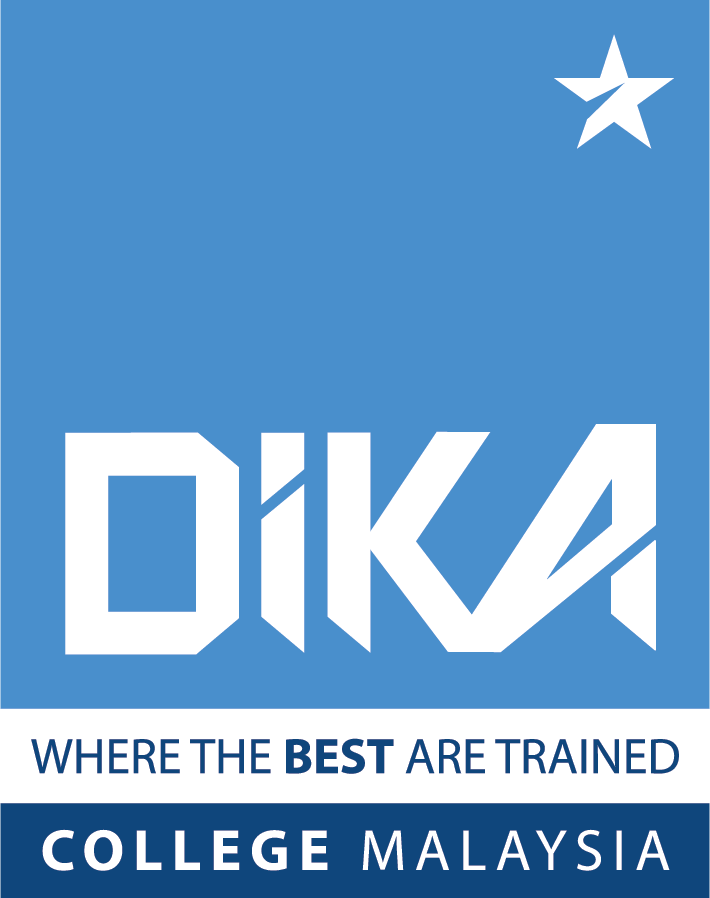
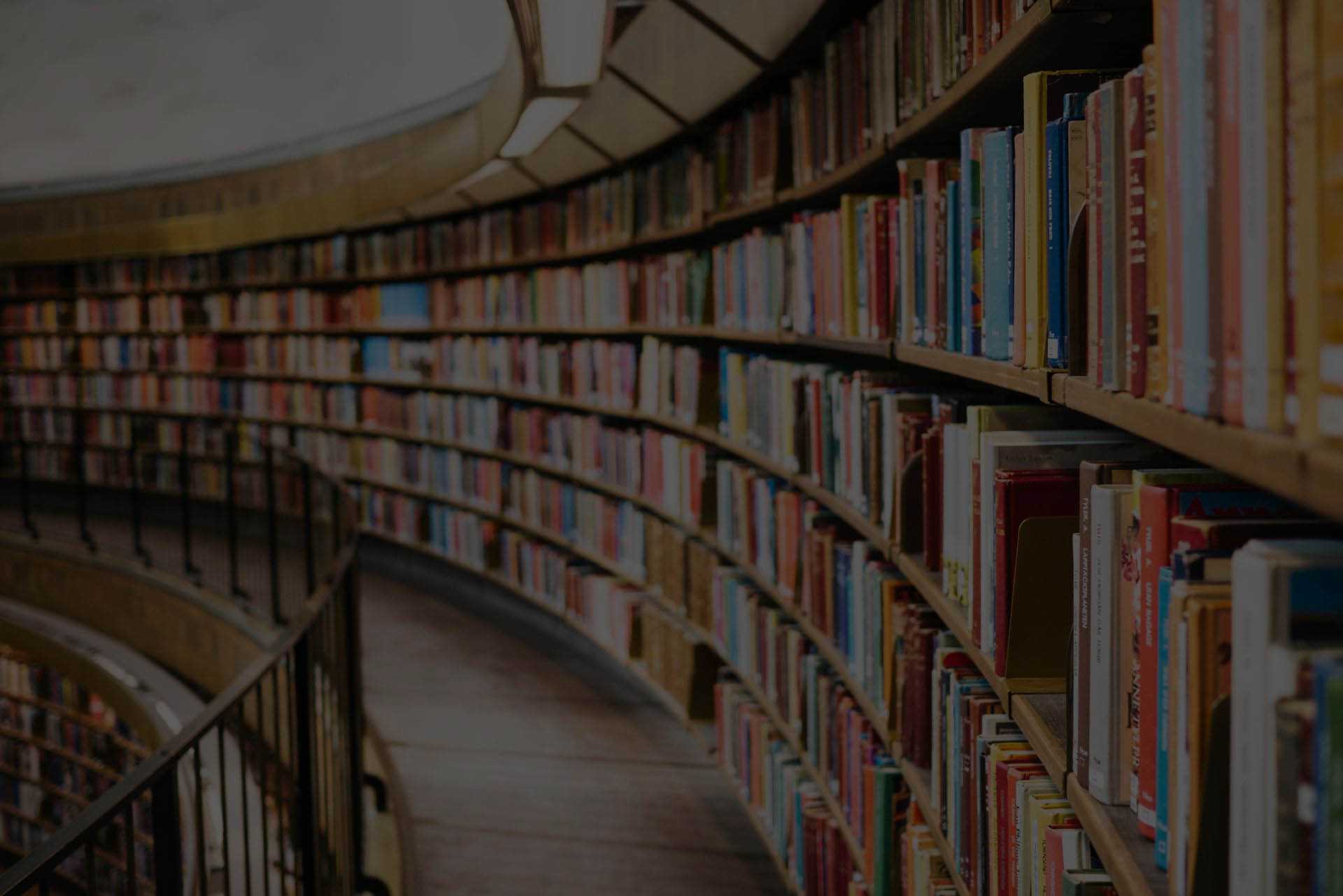
No Comments